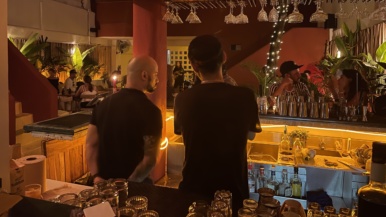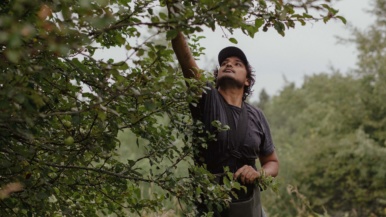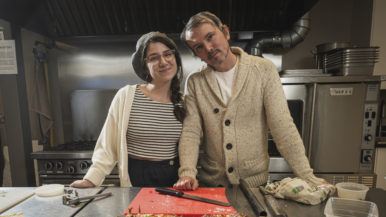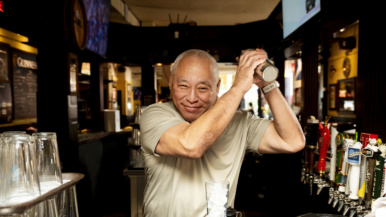My father died on Flight 752. Here’s what I want you to know

The last time I spoke to my father, he was about to board a plane from Tehran to Kiev. He and my mother, both devout Shia Muslims, had been leading a tour of Shia holy sites in Iraq and Iran. When he called me from the airport, I was driving my 11-year-old son to soccer practice in Mississauga. There was nothing unusual about the conversation. I come from a tight-knit family, and my father and I spoke on the phone four or five times a day. (There’s a reason he always tried to get the best Rogers plan.) I told him I loved him. He boasted about how far he walked that day. He was always trying to reach his daily goal of 10,000 steps. The call disconnected midway through, and something inside me knew I couldn’t leave it at that. I called him back and told him, as I often did, that he made me the person I am today.
“Yeah, yeah, I know, okay,” he said. “I got my steps in. Rehana, are you going to the gym? Are you taking care of yourself?”
My dad, Asgar Dhirani, was born in Dar es Salaam, Tanzania, in 1945. He left East Africa to study accounting at Aligarh Muslim University in India, then moved to England to begin practising. There, he met my mother, Razia, who had emigrated from her birthplace in Uganda. In the 1970s, it was unusual for Muslims to marry for love. But my parents had a whirlwind romance, dating in secret for six weeks before getting married. In 1972, they had a son—my brother, Arif—and decided to raise their family in Canada. They thought of it as the land of opportunity.

In 1975, they arrived in Toronto. I was born two years later, in Scarborough. My father worked as an accountant and travelled often for work. I remember waiting at the window for him to come home on Fridays so I could run outside and greet him. He was a voracious reader, devouring books about religion, politics and history. He used to challenge me to read as much as I could, so we’d both read the same book and then talk about it after. I’d take books out of the school library and covertly pass them on to him. When the Internet came along, friends and family started calling him “Mr. Google”—he just had to look up every little fact. His love of history and books must have rubbed off on me, because I ended up becoming a social science teacher.
We moved to Unionville in 1985, and my dad got involved in the local community, particularly our mosque, where he acted as treasurer, secretary and Sunday-school teacher. He helped organize the food bank and volunteered his time and money to help other immigrant families settle in. It was in the ’80s that my parents first went to Saudi Arabia for the hajj—an annual pilgrimage to Mecca. They wanted to give other Canadian Muslims the opportunity to visit the same holy shrines, so in the 1990s, my parents started organizing religious tours.

My father decided to join the most recent tour, from December 2019 to January 2020, at the last minute, so he wasn’t able to get on my mother’s Emirates flight back to Toronto. She would stop over in Dubai, while my father’s Ukrainian International Airlines flight went through Kiev. Seven hours after I spoke to my father on the phone, I was lying sleepless in my bed when my phone rang. It was my brother.
“What was dad’s flight number?” he asked. He told me there had been an accident. My stomach sunk to my knees and I knew my father was gone. My husband drove me from our home in Mississauga to my brother’s house in Richmond Hill. When we saw each other we couldn’t hold back our tears. We both cried and held each other.
Then we had to tell our mother—who was still on her flight from Dubai to Toronto—what had happened. Our cousin came over and recited a passage from the Quran and we took off for Pearson Airport. My mother was going through customs when she found out. She turned on her phone and saw a flood of messages. When she reached the customs official, she must have looked distraught. He asked if she was okay.
“Was there a plane crash? A Ukrainian plane crash?” she said.
He looked at her.
“My husband was on that plane,” she said. “Tell me.”
“Yes,” he said.
I could see the doors to the baggage claim area opening and closing, but I couldn’t go past them. Finally, I saw my mother—she was walking with the customs official, he was holding her, and they were both crying. I stood there waiting with my brother, my sister-in-law, my husband, my mom’s twin brother and his wife. It was hell. We took her to my brother’s house and waited for everything to sink in.

Our mosque held a service for my dad and two other members who were on Flight 752—a mother and daughter, Afifa and Alina Tarbhai, who were part of my parents’ tour group. Over 1,000 people showed up to pay their respects. People I don’t even know, whose lives my father touched in some way, have called me to offer their condolences. He lived a good life—he was 74 years old, with two kids and five grandchildren. I feel gratitude for the life that he lived.
When the service was over, our local MP approached our family and said Justin Trudeau wanted to meet us. He was meeting with all the victims’ family members, and on the Friday after the crash, about six families arrived at a hotel at Leslie and Highway 7. He met with each family separately, just him and us. It was very intimate and very compassionate. We spoke for about an hour, he didn’t rush us.
Nearly a week went by after the crash before I started reading the news, and I quickly stopped. It was just too much. There were so many theories. I can’t really think about the politics of it all—it’s still too raw. Right now, I’m focusing on the complicated process of identifying and bringing back his remains. My family went down to the local police station on January 10 and 14 to give DNA samples and dental records. Today, we’ll be leaving for Iran to find out whatever we can.

Waiting is hard. We’re a family of go-getters. On our last trip together in July 2019, we all went to Morocco—my husband and kids, my parents, my brother, his wife and their kids. On our way back to the hotel one day, my husband, sister-in-law and the kids took a ride in a horse carriage. But even in the summer heat, in the middle of the desert, my dad wanted to walk. My mom, my brother and I decided to walk with him. He loved fitness and always wanted me to take care of myself.
My dad was my best friend. But in the past week, I’ve discovered that he had thousands of best friends. He made everyone feel special. He loved to take his grandsons golfing. He fought with us when we tried to pay for a bill. Everything he did, he connected back to the teachings of Islam—respect, kindness, education and humility. I’ll miss talking to my dad five times a day. I’ll miss hearing about his steps. I’ll miss him telling me how to live a humble life, how to be strong and kind at the same time. If I can be even a quarter of what he was, I’ll be satisfied.





